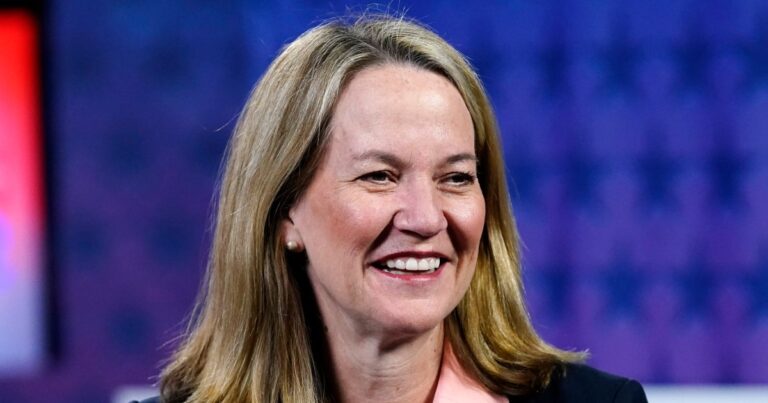PHOENIX — After three days of arguments, the decision on whether Arizona’s “fake electors” lawsuit will move forward with a trial scheduled for Jan. 5, 2026, rests in the hands of Maricopa County Superior Court Judge Bruce Cohen.
The defendants argued Monday and Tuesday that the charges against 11 people who signed documents claiming to be Arizona’s 2020 Electoral College electors — even though Joe Biden won the state and Arizona certified his victory — and other allies of Donald Trump should be dismissed on the grounds that they were exercising their First Amendment rights.
Mark Williams, a lawyer for Trump’s former lawyer Rudy Giuliani, told Cohen on Tuesday that the indictment was filed “to deprive my client of his freedom of speech, freedom of association and freedom to petition the government for political relief.”
“These things are not illegal,” Williams added.
The state defended itself on Wednesday, arguing that the charges of fraud, forgery and conspiracy have no connection to the defendants’ political statements or associations.
“Conspiracy itself is not protected speech,” prosecutor Nicholas Klingerman said. “Certainly Mr. Giuliani had the right to hold a sham hearing at the Hilton on November 30th and to allege that thousands of people in Arizona had voted fraudulently in the election. But he did not have the right to make those statements with the intent to do so. That is the crime he was charged with.”
In addition to the alleged “fake electors,” the defendants also include Giuliani, Trump’s White House chief of staff Mark Meadows, former Trump campaign lawyer Christina Bobb, former Trump campaign lawyer John Eastman, Boris Epstein, Jenna Ellis and Trump campaign Election Day managers Michael Roman.
The 18 defendants were each charged with nine felony counts after a grand jury handed up an indictment in April. The indictment alleges that “false electors” used “false or fraudulent pretenses” to try to keep Trump in office. It also alleges that all of the defendants conspired to “deprive Arizona voters of their right to vote and to have their votes counted.”
Two of the defendants, including Iris, have entered into plea agreements with the state and are cooperating with prosecutors. Many of the remaining 16 defendants have filed motions to dismiss the case under the state’s “anti-SLAPP” law, which bans “strategic lawsuits against public participation.” Many states have similar laws on the books designed to protect people exercising their speech rights from unfair lawsuits, but the Arizona Legislature expanded the law in 2022 to apply to criminal cases in addition to civil cases.
The expansion has given hope to some of Arizona’s defendants, and Mr. Eastman expressed confidence outside court this week.
“My hope going forward is that this case will ultimately be dismissed fairly quickly,” he said. “I think the application of Arizona’s anti-SLAPP statute to criminal prosecutions is a new development in the law of this country, and I think Judge Cohen correctly understands the importance of that.”
The other defendants argued that Attorney General Chris Mays, a Democrat who filed the lawsuit, was pursuing it solely for political purposes.
“Everywhere you look in the streets of Arizona, all the time, there are bumper stickers saying: ‘Vote for Trump.’ ‘Vote for Trump.’ That’s what everyone is saying. It’s horrifying for Mayes,” Giuliani’s lawyer Williams said. “This is a conspiracy to deprive Mr. Giuliani and his co-conspirators of the right to petition the government.”
After court adjourned Wednesday, Judge Mays refuted arguments made by Williams and the other defense attorneys.
“Let me be clear: the prosecution in this case is not politically motivated; it is the result of a thorough, lengthy and professional investigation conducted by experienced and dedicated law enforcement officers and prosecutors,” she said in a video statement.
Mays also addressed the defendants’ anti-SLAPP lawsuit arguments.
“This case is not about the Defendants’ First Amendment rights, and the conduct at issue is not protected by free speech,” she said. “The law draws a clear line between free expression and illegal conduct, and we believe the evidence makes clear that the Defendants crossed that line.”
Mayes’ term ends in 2027. If the trial doesn’t go ahead as scheduled and Mayes isn’t re-elected, a different attorney general could oversee the prosecution or even end it.
Prosecutor Klingerman also rejected the notion that the case was politically motivated during arguments Wednesday.
“How can you say this is illegal when an independent grand jury issued the indictment?” he asked.
The trial, originally scheduled for just one day, stretched to three days as at least 12 defendants sought to have the case dismissed. The dragged-out process led to more defendants and their lawyers attending the hearing virtually as the days went by, leading to further disruptions.
On Tuesday, Bob’s lawyer, Thomas Jacobs, turned on his camera to reveal he was joining the virtual meeting from a boat. On Wednesday, one of the virtual meeting participants accidentally unmuted himself while buying bird food.
After Klingerman presented the prosecution’s defense and argued that the case should not be dismissed, Judge Cohen ordered the defendants to file a five-page brief refuting the prosecution’s arguments by September 6th.


